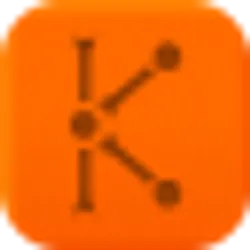We are very happy to release Kuzu 0.0.5 today! This release comes with the following new main features and improvements:
Cypher Features
Named Paths
This releases introduces named paths. Users can now assign a named variable to a connected graph pattern. For example, the following query returns all path between Adam and Karissa.
MATCH p = (a:User)-[:Follows]->(b:User)
WHERE a.name = 'Adam' AND b.name = 'Karissa'
RETURN p;Named paths can also be assigned to recursive graph patterns as follows:
MATCH p = (a:User)-[:Follows*1..2]->(:User)-[:LivesIn]->(:City)
WHERE a.name = 'Adam'
RETURN p;One can also assign multiple named paths in a MATCH clause
MATCH p1 = (a:User)-[:Follows]->(b:User), p2 = (b)-[:LivesIn]->(:City)
WHERE a.name = 'Adam'
RETURN p1, p2;Internally, a path is processed as a STRUCT with two fields, a nodes field with key _NODES and type LIST[NODE] and a rels field with key _RELS and type LIST[REL]. See PATH for details. Users can access nodes and rels field with nodes(p) and rels(p) function calls as follows:
MATCH p = (a:User)-[:Follows*1..2]->(:User)
WHERE a.name = 'Adam'
RETURN nodes(p), (rels(p)[1]).since;Filters of Relationships in Recursive Patterns
Users can now put predicates on the relationships that will be “traversed/joined” in recursive patterns. For example, the following query finds the name of users that are followed by Adam directly or indirectly through 2 hops where the following started before 2022 (r.since < 2022 predicate):
MATCH p = (a:User)-[:Follows*1..2 (r, _ | WHERE r.since < 2022)]->(b:User)
WHERE a.name = 'Adam'
RETURN DISTINCT b.name;Our filter grammar follows Memgraph’s syntax. The first variable r in the (r, _ | WHERE r.since < 2022) predicate binds to the relationships in the recursive pattern and the _ binds to the nodes. Since we currently don’t allow filters on recursive nodes, the second variable must be _ for now.
All Shortest Paths
Kuzu now supports all shortest paths semantic with key word ALL SHORTEST. The following query finds all shortest paths of up to length 3 between Zhang and Waterloo considering relationships of all labels (i.e., this is an unlabeled query and you can restrict the labels by adding them as [:Follows* ALL SHORTEST 1..3]).
MATCH p = (a)-[* ALL SHORTEST 1..3]-(b)
WHERE a.name = 'Zhang' AND b.name = 'Waterloo'
RETURN p;See All Shortest Paths on our documentation for more information.
Call Clause
This release introduces Call as a reading clause. Similar to Neo4j, Call clause is used to execute procedures. The release also contains a set of predefined procedures that can be used to query the database schemas. For example, the following query returns all metadata of User table:
CALL table_info('User') RETURN *;
---------------------------------------------
| property id | name | type | primary key |
---------------------------------------------
| 0 | name | STRING | True |
---------------------------------------------
| 1 | age | INT64 | False |
---------------------------------------------Call can be used together with other clauses in the same way as a reading clause:
CALL table_info('User') WITH * WHERE name STARTS WITH 'a' RETURN name;
--------
| name |
--------
| age |
--------More built in procedures can be found here.
Modifying Database Configurations
CALL has another usage: you can now modify database configurations through a Call param=x pattern. For example, the following sets the maximum number of threads for query execution to 5:
CALL THREADS=5;More configuration options can be found here.
Data Types
BLOB
We have also added the BLOB type to store arbitrary binary objects. Here is an example query returning a blob:
RETURN BLOB('\\xBC\\xBD\\xBA\\xAA') as result;
---------------------------------------------
| result |
---------------------------------------------
| \xBC\xBD\xBA\xAA |
---------------------------------------------More information on the blob data type can be found here.
Client APIs: Rust and Java
In this release, we’re expanding the accessibility of Kuzu, bridging the gap with some of the most popular programming languages in the developer community. Specifically, we now have Rust and Java APIs.
Development: Testing Framework
Starting with this release, we’re adding some development guidelines to encourage and facilitate outside contributions from the broader open source community.
Testing is a crucial part of Kuzu to ensure the correct functioning of the system. In this release, we’ve implemented significant changes to our testing framework. Our approach to testing is rooted in the principle of end-to-end tests rather than individual unit tests. Whenever possible, we route all tests in the end-to-end way through Cypher statements. To this end, we’ve designed a custom testing framework that enables thorough end-to-end testing via Cypher statements.
Our testing framework draws inspiration from SQLLogicTest, albeit with customized syntax tailored to our needs. For a more detailed overview of our testing framework, please visit here.


